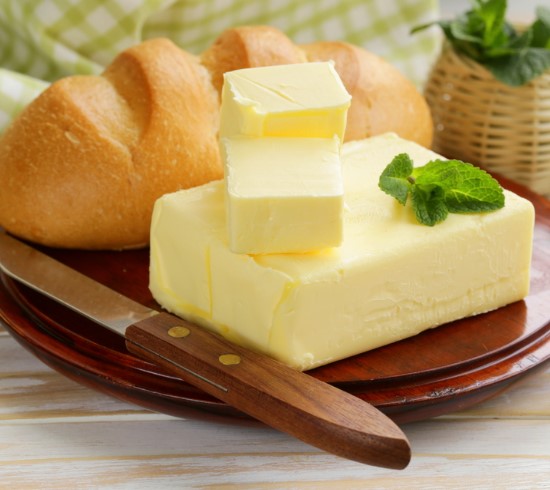What's wrong with coconut oil

Photo is illustrative in nature. From open sources.
Coconut butter is a new product. But IT's bought, it's sold in big stores. And many people believe it's very useful. There's a lot of information about it on the Internet. Is it really wrong? Or are the conclusions of US scientists questionable? We've been looking into the A&F.
"The product is new not only to us, but also to the West. It is also usually presented there as a super product," says Konstantin Spakhov, PhD in medicine, a therapist and gastroenterologist. - However, there are few serious studies of coconut oil, and they are often contradictory. American scientists have decided to bring clarity to this issue. They have collected in a single array of 16 studies of this product, conducted earlier, and re-evaluated these combined data. This is called meta-analysis, and it often provides new information that could not be identified in individual studies. That's why I trust this kind of work. You could say that scientists have summed up intermediate results. In all the works, coconut oil was compared to other oils used in cooking. Mainly - with liquid vegetable oils (olive, sunflower, rapeseed, soybean, corn, etc.), as well as with solid oils: palm and cream. It has been assessed how oils affect cholesterol levels, triglycerides, body weight, waist volume and a number of other indicators important for the development of diabetes. The article was published in the latest issue of the famous and authoritative magazine Circulation ("Blood circulation") in January.
Bad cholesterol is rising significantly.
It turned out that compared to other non-tropical oils, coconut oil increases all types of cholesterol more significantly:
- total cholesterol by 14.69 mg/dL;
- harmful cholesterol (referred to as LDL) - by 10.47 mg/dL (8.6% increase);
- beneficial cholesterol (PAP) - by 4.00 mg/dL (increase by 7.8%).
The researchers assessed these changes as follows: "Consumption of coconut oil significantly increased the concentration of low-density lipoprotein cholesterol (LDL) compared to non-tropical vegetable oils".
Separately, they also stipulate that in addition to bad cholesterol (LDL), coconut butter also increased the concentration of good oil (LDL). According to the authors of the study, this is not enough to make the product useful, as "attempts to reduce the risk of cardiovascular disease by increasing PAP were unsuccessful". That is, raising one useful cholesterol is not enough, we need to reduce the harmful ones.
Coconut versus palm.
Consumption of coconut oil compared to other oils had no significant impact on triglycerides, body weight and glucose metabolism (they are important for diabetes mellitus).
In addition, scientists compared coconut oil with palm oil. These two oils are often mistaken for one. They are different: coconut oil is vegetable fat from coconut nuts, and palm oil is derived from the seeds of African oil palm fruit, it is also called palmoyadre oil. Coconut is much harder than palm oil and even lard. Whoever bought it knows that it is not even cut with a knife, you have to stab it. It's due to the large amount of saturated fat. And palm oil has more of those fats than lard. These fats are considered harmful, and it's because of them that bad cholesterol rises. When comparing two tropical oils, coconut was more harmful.
What do we do?
"Coconut oil can be seen as one of the most harmful cooking oils that increases the risk of cardiovascular disease," the researchers say. - Even compared to palm oil (which is another tropical oil that also contains a lot of saturated fats), coconut oil increased LDL levels.
How do you feel about coconut butter after all this? The verdict of the scientists who conducted the meta-analysis is categorical: "Replacing coconut oil with unsaturated (liquid) vegetable oils, especially those rich in polyunsaturated fats, will be good for your Health. We believe that the results of this meta-analysis can be used to develop nutritional recommendations. In culinary practice, coconut oil should not be used as normal vegetable oil, although it can be used economically for cooking.
Read together with it:
- Reuters сообщил о «сверхбыстром» ремонте российских НПЗ после атак дроновРоссии удалось в кратчайшие сроки отремонтировать свои НПЗ, поврежденные после атак дронов, пишет Reuters. По данным агентства, простаивающие из-за атак мощности в марте сократились до 90,5 тыс. тонн против 123,8 тыс. т ранее Россия смогла очень быстро восстановить работу своих нефтеперерабатывающих...
- Посол предупредил о возможных сложностях для российских туристов в ТурцииРоссийский посол в Анкаре Алексей Ерхов предупредил о возможных трудностях для туристов из России в Турцию из-за санкций. Об этом он рассказал «РИА Новости». По словам Ерхова, ситуация с платежными переводами из России в Турцию остается напряженной, а Запад целенаправленно разрушает российско-турецк...
- США: Обзор рынка свиней за 15 неделю от 15 апреля 2024 годаНациональная стоимость свиных туш упала на 9 центов в отчете в пятницу вечером и составила 101,20 доллара. Министерство сельского хозяйства США оценило забой свиней, прошедший федеральную проверку на этой неделе, в 2,485 миллиона голов. Это на 64 000 голов больше, чем на прошлой неделе, и на 58 000 ...
- USA: Cattle market review for the 15th week of April 15, 2024Another case of HPAI was discovered in a dairy herd in South Dakota, which has now spread to 8 states and will likely lead to more long positions exiting amid consumer perceptions and risks. Wholesale prices for USDA packaged beef rose again in Friday afternoon's report . Choice rose $2.20 to $300.5...
- С начала 2024 года Вологодская область поставила на экспорт 5 тысяч тонн продукции АПКВрио губернатора Вологодской области Георгий Филимонов сообщил, что с начала текущего года вологодская продукция АПК была отправлена на экспорт в 19 стран, при этом наибольший объем доставлен в Узбекистан, Китай и Беларусь. - Всего за первый квартал 2024 года было вывезено 5 тысяч тонн агропромышлен...
- Лондонская биржа металлов предупредила о неопределенности из-за санкцийЛондонская биржа металлов предупредила, что новые санкции против российской продукции могут привести к неопределенности на рынке, поскольку участники, не зарегистрированные в Британии, смогут продолжить операции с ней Лондонская биржа металлов Лондонская биржа металлов (London Metal Exchange, LME) з...
- Приложения Газпромбанка и МКБ пропали из App StoreМобильные приложения Газпромбанка и Московского кредитного банка (МКБ) стали недоступны для скачивания в App Store с 13 апреля, сообщили в пресс-службах финансовых организаций. «Уже установленные приложения работают как раньше, все сервисы доступны без ограничений, а новым клиентам рекомендуем воспо...





























































